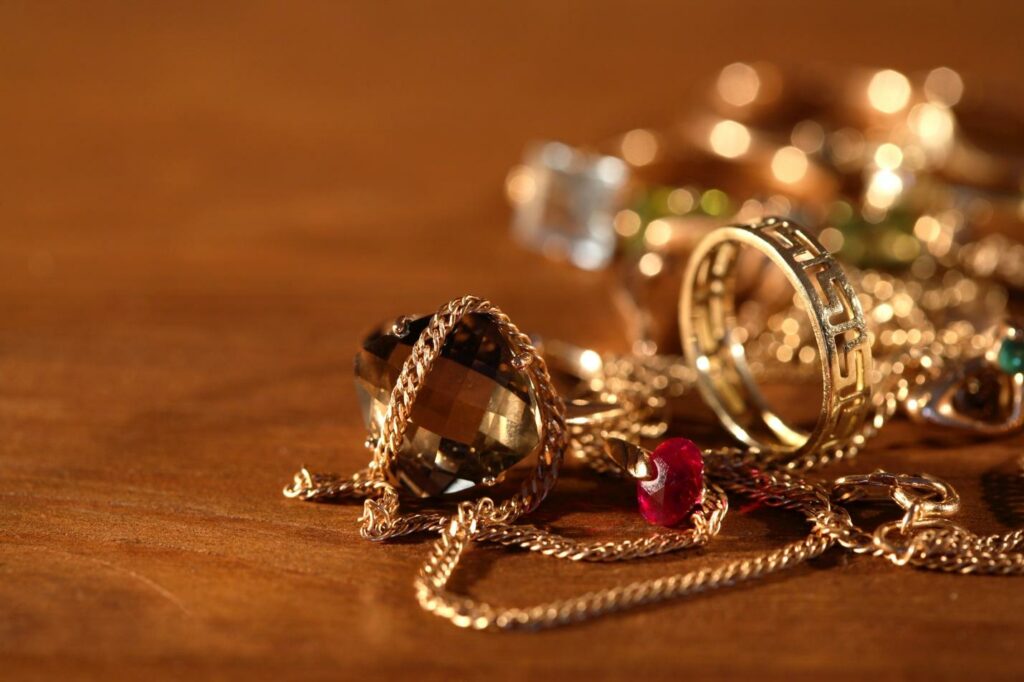
Gold Inheritance Tax: Things You Need to Know
Most people have heard of the tax rules for trading gold. However, what if you inherited or were gifted these precious metals from a close relative? What are the taxation rules, and how do they apply to these situations? This article breaks down possible scenarios and offers solutions to help you navigate through your taxes.
Nowadays, the process of buying and selling these precious metals has never been more straightforward because of legitimate dealers. You can now do them online or go to a trustworthy store in your area. But what if you’ve inherited several palladium, silver, gold, or platinum coins?
When you inherit or are gifted a small amount of gold, it is often difficult to decide whether or not to sell it. Some people believe that the original owner would have wanted them to keep these as investments, while others think they should cash in on their perceived value and use the money for more important things.
With the help of the experts that many generations of families have trusted, you’ll know how to handle the newly inherited wealth and the tax implications that come with them. Many companies will give you advice about a gold inheritance tax to decide whether to sell or keep the bars for future generations. It’s perfectly fine to get profits with them, especially if you see that the market is at an all-time high.
Don’t Rush into Selling
Many individuals may rush to the nearest pawn shop or jeweler and accept the prices that may be way below the actual value of the goods. However, know that the first step to do is to make an inventory of what you have. Determine the purity and weight of the gold and if they correlate to that of the spot market. Learn about numismatic or special collector’s value as well.
Options to Take
1. Sell the Inheritance for Cash
One of the more popular ways that many people make is to sell their inheritance for cash, especially if they face financial problems. Just make sure that you deal with a reputable buyer who will deal with you quickly. Some may take a week or months before they get paid, and this is a situation that you need to avoid.
2. Hold them as an Investment
Know that precious metals are considered stores of value. Your significant other or family members may have the intent of owning them as a long-term strategy for wealth preservation or leaving tangible assets behind. It’s best if you would research first before making a move. See more about investing in gold on this site here.
3. Evaluate and Trade
Depending on your current holding, it’s crucial to reposition a portion of the gold and silver in your portfolio for diversification. You can trade some of these assets, and their value will vary depending on their rarity, purity, and form. They can come in the form of bullion, numismatic coins, and bars.
Adding Your Name to the Inherited Precious Metals
You might find yourself to be a beneficiary of an individual retirement account, but this doesn’t automatically mean that the name will be transferred to you when the owner dies. You need to facilitate and do various paperwork to facilitate the transfer in the first place. The process may involve submitting death certificates, relevant documents, and other personal information that the custodian requires.
With the assistance of the best firms, you’ll be familiar with the process, and they will assist you whenever you need them to. A licensed dealer will also advise you on what to do with the IRA.
Understanding the IRA Rules
There’s a distinct difference between spouses and non-spouses that are applying for the inheritance. A spouse will often be able to enter the individual retirement account and put all the bullion into their own name and instantly make them the owner. On the other hand, non-spouses or partners will NOT be able to treat this IRA as if it’s their own. They are going to be required to take distributions the year after the owner’s death. Ensure to consult with a professional for the tax rules to avoid penalties and fees.
If you’ve inherited the precious metals, it’s going to be included in the assets that you don’t essentially have to pay taxes on. Read over your state’s inheritance taxes for more information. You can keep them tax-free if they are below $11.7 million. If you’re over this amount, there’s a need to pay for those who have exceeded the limit.
Selling the Bullion
When choosing to sell your inheritance, the tax liabilities will depend on various factors. There’s a need for a professional appraisal before you can sell, and the experts will have to declare the market value according to the IRS guidelines. See more about tax guidelines when you click here: https://smallbusiness.chron.com/need-pay-tax-sell-gold-jewelry-16685.html.
The process will occur twice because the value of the bullion and coins may constantly fluctuate. First, you need to appraise them based on their worth, and this is on the day when the person you’ve inherited them from passed away. Second appraisals are generally done on the day that you’ve chosen to sell the assets.
You’re only taxed on the profits that you’ve gained after deciding to sell. The price may end up more than what they were initially worth on the first appraisal, so expect to pay more in taxes. It’s worth noting that the individuals are liable to pay taxes on their capital gains to the IRS.